Background and recording
The opening song "Papillon" (French for "butterfly") had no title when it was written, or even when it was recorded. While listening to the finished mix, the band members decided that the opening Moog flurry sounded like butterfly wings, and named the song after the recently released film Papillon . [4]
"Someday" was written about the breakup of bassist/lead vocalist/guitarist Lee Jackson's marriage. [4]
Keyboardist Patrick Moraz came up with the idea of writing a song about the Grand Canyon and asked Jackson to write lyrics for it. Jackson took books and maps out of the library to research and get inspiration for the lyrics. [4]
The title of the track "Ritt Mickley" originated from Moraz's strong French Swiss accent, when he asked the other band members to play the song again but more "rhythmically". [4] [5]

Keith Noel Emerson was an English keyboardist, songwriter, composer and record producer. He played keyboards in a number of bands before finding his first commercial success with the Nice in the late 1960s. He became internationally famous for his work with the Nice, which included writing rock arrangements of classical music. After leaving the Nice in 1970, he was a founding member of Emerson, Lake & Palmer (ELP), one of the early progressive rock supergroups.

The Nice were an English progressive rock band active in the late 1960s. They blended rock, jazz and classical music and were keyboardist Keith Emerson's first commercially successful band.

Pictures at an Exhibition is a live album by English progressive rock band Emerson, Lake & Palmer, released in November 1971 on Island Records. It features the group's rock adaptation of Pictures at an Exhibition by Modest Mussorgsky, performed at Newcastle City Hall on 26 March 1971.
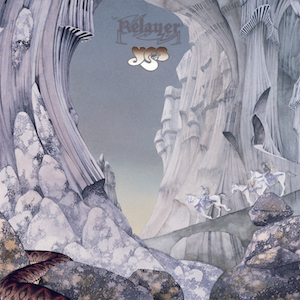
Relayer is the seventh studio album by the English progressive rock band Yes, released in November 1974 by Atlantic Records. After keyboardist Rick Wakeman left the group in May 1974 over disagreements with the band's direction following their double concept album Tales from Topographic Oceans (1973), Yes entered rehearsals as a four-piece in Buckinghamshire. They auditioned several musicians, including Greek keyboardist and composer Vangelis, before settling with Swiss musician Patrick Moraz of Refugee who incorporated elements of funk and jazz fusion to the album. Relayer is formed of three tracks, with "The Gates of Delirium" on side one and "Sound Chaser" and "To Be Over" on side two.
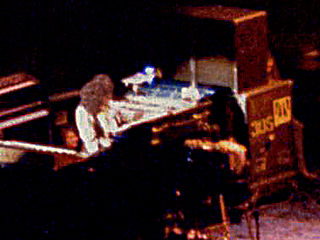
Patrick Philippe Moraz is a Swiss musician, film composer and songwriter, best known for his tenures as keyboardist in the rock bands Yes and the Moody Blues.

Going for the One is the eighth studio album by English progressive rock band Yes, released on 15 July 1977 by Atlantic Records. After taking a break in activity in 1975 for each member to release a solo album, and their 1976 tour of the United States and Canada, the band relocated to Montreux, Switzerland to record their next studio album. During rehearsals, keyboardist Patrick Moraz left the group, which marked the return of Rick Wakeman who had left to pursue a solo career after differences surrounding Tales from Topographic Oceans (1973). In a departure from their previous albums, Going for the One, with the exception of the fifteen-minute "Awaken", features shorter and more direct songs without an overarching concept, and saw Yes record with new engineering personnel and cover artists.
The Vako Orchestron is a keyboard instrument made in the 1970s, that produces its sound through electronic amplification of sounds pre-recorded on an optical disc. It is the professional version of the Mattel Optigan, an earlier and lower-priced model intended for amateur musicians.
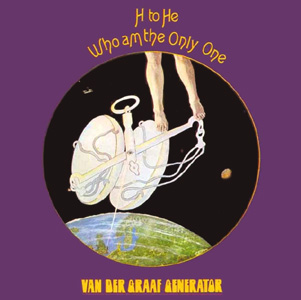
H to He, Who Am the Only One is the third album by the British progressive rock band Van der Graaf Generator. It was released in 1970 on Charisma Records.
Papillon, papillons, or le papillon may refer to:
Refugee were a progressive rock band formed in 1973 vocalist and bassist Lee Jackson and drummer Brian Davison, after they met Swiss keyboardist Patrick Moraz. They released one album, Refugee (1974), and made several live tours. Refugee were preparing material for a second album when Moraz left the group in August 1974 to join Yes and the group subsequently dissolved.
Jackson Heights was a British progressive rock band from England. It formed in 1970 after The Nice organist and pianist, Keith Emerson, decided to leave the trio to form another band, Emerson, Lake and Palmer, leaving bassist-vocalist Lee Jackson and drummer Brian Davison on their own.

John Charles Lodge is an English musician, best known as bass guitarist, vocalist, and songwriter of the longstanding rock band the Moody Blues. He has also worked as a record producer and has collaborated with other musicians outside the band. In 2018, Lodge was inducted into the Rock and Roll Hall of Fame as a member of the Moody Blues.
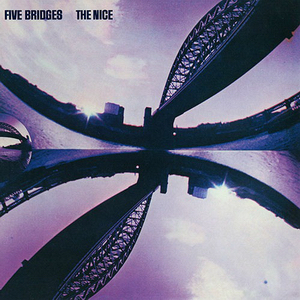
Five Bridges is a live and studio album and fourth overall by English progressive rock band The Nice, released in June 1970 by Charisma Records. Most of the album was recorded live in concert at Fairfield Halls in Croydon, London, in October 1969. The final track, "One of Those People", is a studio recording. The album's centrepiece is "The Five Bridges Suite", a five-part composition about Newcastle upon Tyne that features the group performing with the Sinfonia of London session orchestra conducted by Joseph Eger.

Beginnings is the debut studio album by English guitarist and songwriter Steve Howe, released in October 1975 by Atlantic Records. It was recorded and released during a break in activity from the progressive rock band Yes, after they agreed for each member to produce a solo album. Howe employed various guest musicians, including past and present Yes bandmates Bill Bruford, Alan White and Patrick Moraz, plus members of Gryphon.
Brian Davison, was a British musician. He is best known for playing drums with The Mark Leeman Five, The Nice, Brian Davison's Every Which Way, Refugee and Gong.
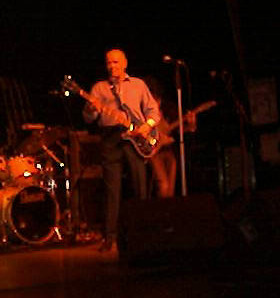
Keith Anthony Joseph "Lee" Jackson is an English bass guitarist known for his work in the Nice, a progressive-rock band, as well as his own band formed after the Nice, Jackson Heights, and finally Refugee with Nice drummer Brian Davison and Swiss keyboardist Patrick Moraz. Jackson plays bass left handed.

Live in Concert Newcastle City Hall 1974 is a live album by the British progressive rock group Refugee, recorded on 16 June 1974 onto cassette straight from the soundboard. It was released under the Voiceprint Records in 2007. The album includes The Nice song "The Diamond Hard Blue Apples of the Moon" and a cover of Bob Dylan's "She Belongs to Me", all songs from the debut album and the four-minute "Refugee Jam".












